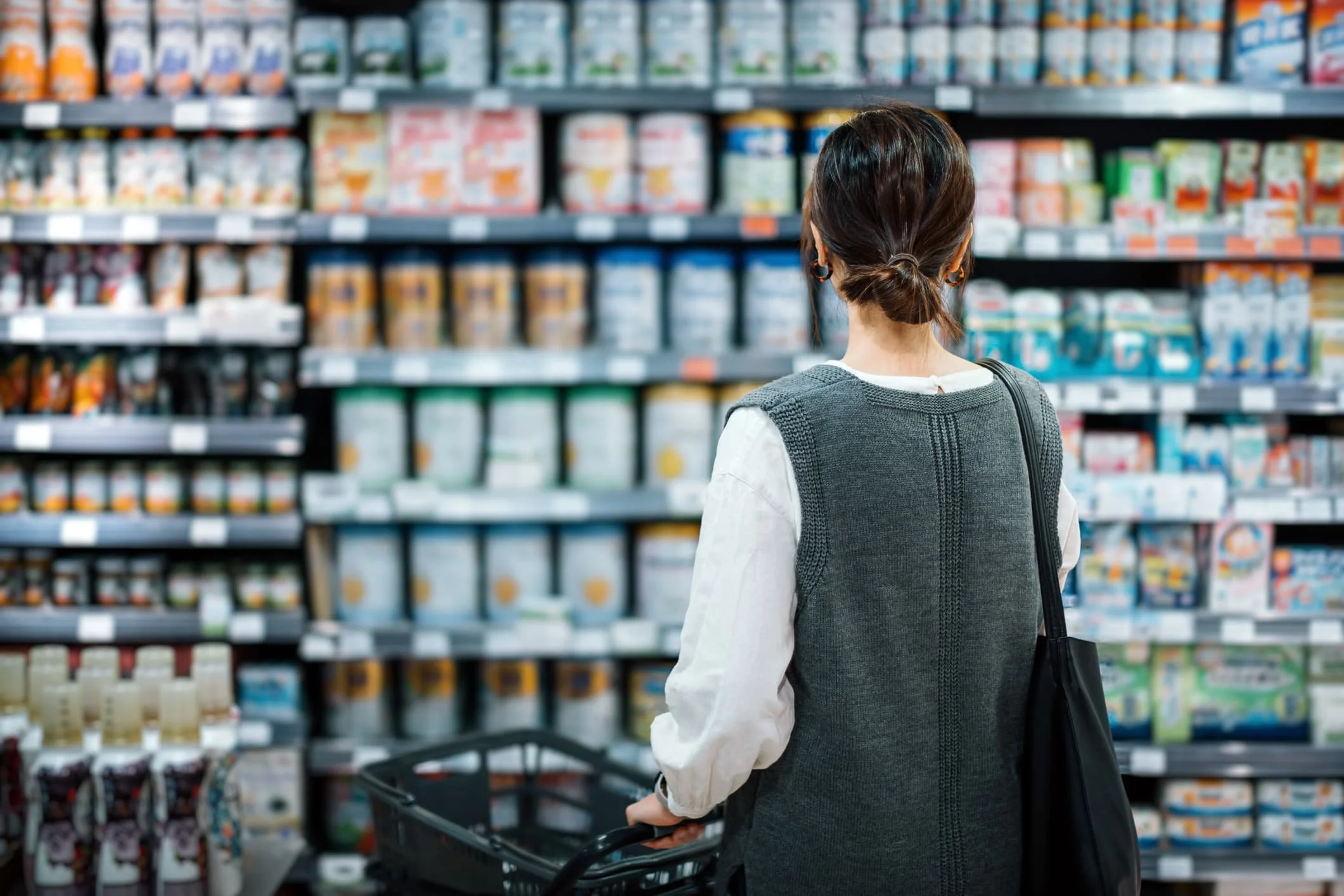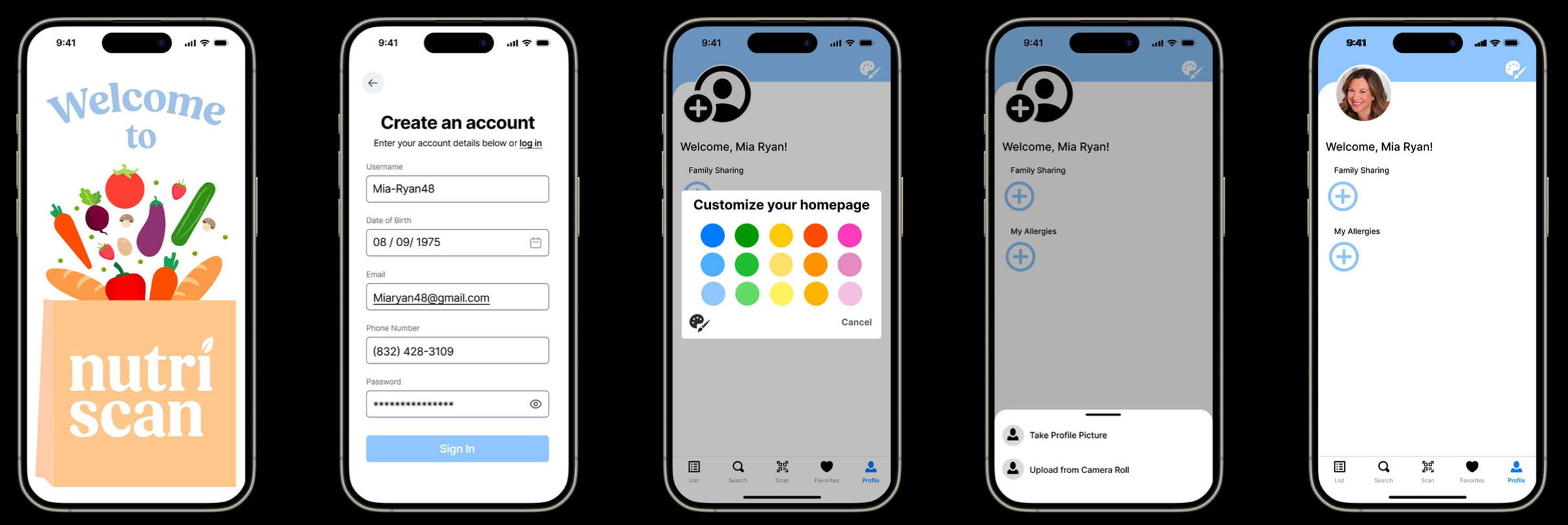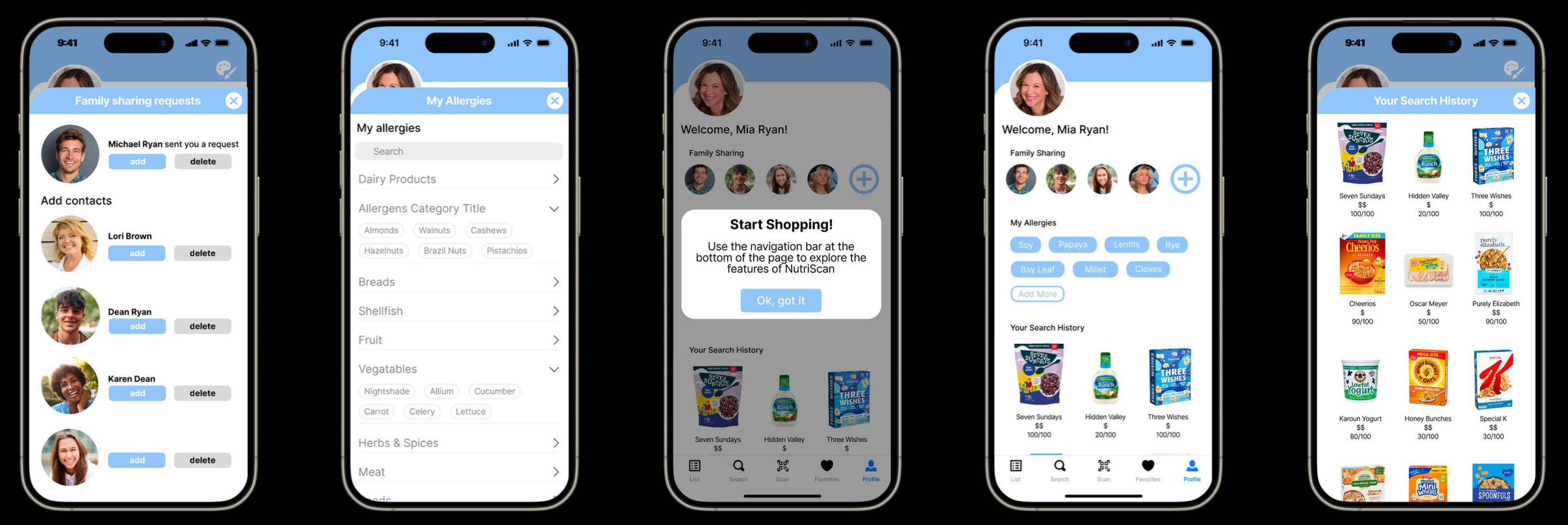An app designed to allow users to live a healthier and more efficient lifestyle.
Project Overview
Brainstorm and figure out a problem in society that could be solved by developing an app that could stand on its own.
Assignment
Come up with a solution for the challenge of how stressful and hard it is to go to a grocery store nowadays, not having enough time, health restrictions, or trying to sustain a healthy lifestyle, etc.
Challenge
Solution
Nutriscan helps users make mindful food choices by scanning products to reveal nutrition facts, harmful ingredients, and potential health risks—while keeping users engaged and accountable.
Research
Through extensive research a plan to define the overall goals was achieved giving a clear direction to go.
Competitive Analysis
OneLabel
Barcode scanner/search bar
Options to personalize account
Provides thorough detail behind each product
STRENGTHS
WEAKNESSES
Requires membership for a lot of features
Design is overall bland
Photos of products are terrible quality
STRENGTHS
ThinkDirty
Barcode scanner/search bar
Provides analysis of possible potential health benefits
Easy-to-understand rating system
WEAKNESSES
Not user friendly too many pop up ads
Product information is too simplified
Lack of notifications
STRENGTHS
Yuka
User-friendly and easy to navigate
Provides recommendations
Gives product comparisons
WEAKNESSES
Many competing apps provide nutritional info but lack user-friendly explanations and effective notifications.
By analyzing their strengths and gaps, we identified key ways Nutriscan can stand out with clearer insights and stronger accountability features.
Requires membership for a lot of features
Personalization is limited
Does not provide information for finding products
Design Process
Design Process
EMPATHIZE
Consumer Research
To understand the need for Nutriscan, we conducted consumer research and found key insights:
– 32 million Americans have food allergies
– A reaction sends someone to the ER every 3 minutes
– 60% of U.S. foods contain additives, up 10% since 2001
– Additives and ultra-processed foods are linked to allergies, obesity, and diseases like cancer and dementia
These findings highlight the urgent need for better food transparency and awareness.
User Interviews
Throughout the development of our app, we conducted comprehensive interviews encompassing various individuals. We made sure to interview expert users, potential users, and target users. During these interviews we examined their shopping and eating habits, seeking insights into their experiences and app preferences.
Personas
To ensure our Food Scanner caters to diverse needs, we crafted four distinct personas embodying varied perspectives on the app.
DEFINE
Mia Brown
A single mother balancing dietary restrictions for her two sons.
Daniel Clark
A financially constrained college student navigating budget constraints.
John Smith
A retiree urged by doctors to adopt a healthier lifestyle.
Zoey Carter
A young personal trainer managing celiac disease.
Take a look at our personal trainer’s journey map.
Grocery shopping is a struggle trying to find products that she can have with celiac disease. From the stress of trying to find new products in a limited time to accidentally picking up the wrong item.
Confusion of not knowing what’s in each product.
Stress about whether the products meet their dietary restrictions.
Did I forgot something I needed?
Each journey map has similar conclusions:
IDEATE
Features Needed
Planning
Grocery shopping can be stressful and time-consuming. Nutriscan solves this by letting users create and customize grocery lists in-app—for everyday needs or specific plans like vacations.
Recommendations
Trying new products can be tricky—many are overpriced or unhealthy. Nutriscan solves this by letting users scan items and view healthier, more affordable alternatives.
Personalization
To give users control, Nutriscan allows personalized filters to exclude unwanted products and ingredients based on dietary needs.
Family Sharing
Users often shop for others and forget items. Nutriscan solves this with shareable grocery lists—making it easy to send lists to family or roommates instantly.
PROTOTYPE
To guide our prototype, we developed six key “How might we” questions focused on planning, personalization, reminders, exploration, affordability, and health awareness. After brainstorming multiple solutions for each, we voted on the strongest ideas and sketched out the personalization, scanning, and list-sharing features—core systems essential to Nutriscan’s success.
Final Process
During this process, I was in charge of all the personalization features of Nutriscan.












